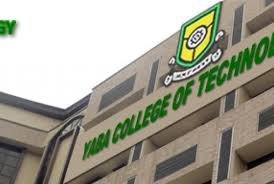A WAVE of opposition has greeted the recent announcement of Yaba College of Technology’s (YABATECH) conversion into a university, as the National Association of Polytechnic Students (NAPS) raises concerns about the potential erosion of Nigeria’s technical education system.
The Minister of Education, Dr Tunji Alausa, revealed on Friday that President Bola Ahmed Tinubu had approved the institution’s transition into a university. Speaking during a visit to the Lagos-based institution, Alausa described YABATECH as a legacy institution well-positioned for the upgrade, with over 200 doctorate-holding staff members and decades of academic excellence.
“The rector said some minutes ago that the staff, students, and management of the college had been praying and fasting that it be converted to a university. Somehow, you have kind of ambushed me,” Alausa stated, acknowledging the institution’s longstanding aspiration for university status.
However, this development has sparked criticism from NAPS, which argues that the conversion contradicts the fundamental purpose of polytechnic education in Nigeria.
In a statement released on Saturday in Kaduna, NAPS President, Eshiofune Oghayan, warned that the move could undermine the nation’s industrial and technical capabilities.
“We reject the proposed conversion of YABATECH into a university. Polytechnic institutions like YABATECH play a crucial role in bridging the gap between theoretical knowledge and industrial application,” Oghayan declared. “They emphasise hands-on experience, problem-solving, and innovation, which are essential for Nigeria’s industrialisation and economic diversification.”
ALSO READ: IDP Students Cry Out as University Blocks Them from Exams Over Unpaid Tuition
Yaba College of Technology (YABATECH), established in 1947, is recognized as Nigeria’s first higher educational institution. Over the decades, it has built a reputation as a hub for technical and vocational education, producing graduates who have significantly contributed to key industries such as engineering, technology, and construction.
The proposed conversion of YABATECH into a university reflects a broader pattern in Nigeria’s educational landscape, where several polytechnics have, in recent years, transitioned to university status. However, the National Association of Polytechnic Students (NAPS) argues that this shift overlooks the essential role polytechnics play in fostering industrial and technical expertise critical to national development.
“Developed countries like Germany, China, Canada, and the United Kingdom continue to strengthen their technical and vocational education sectors, understanding their role in driving industrial growth,” Oghayan explained. “Why is Nigeria moving in the opposite direction?”
Data from the National Bureau of Statistics (NBS) indicates that Nigeria’s manufacturing sector contributes approximately 15% to the country’s Gross Domestic Product (GDP). Experts have attributed much of this success to polytechnic graduates who apply practical, hands-on skills to industrial processes. NAPS contends that replacing polytechnics with universities could diminish this vital contribution.
Rather than converting polytechnics into universities, NAPS advocates for the implementation of a Higher National Diploma (HND) to Bachelor of Technology (B.Tech) transition. This system, the association believes, would offer polytechnic graduates internationally recognised degrees without compromising the practical focus of their training.
“The HND to B.Tech transition is the most viable path to improving the status of polytechnic education while preserving its technical essence,” Oghayan stressed. “This would ensure that polytechnic graduates receive the recognition they deserve without compromising the practical and industry-focused training that makes them valuable to the economy.”
The association further suggested the transformation of the National Board for Technical Education (NBTE) into a Polytechnic Education Commission. This proposed body would oversee technical education reforms, ensuring adequate funding, clear career pathways, and alignment with global standards.
“We urge the Federal Government to engage with NAPS, NBTE, and other key stakeholders in a comprehensive reform agenda that will reposition polytechnic education as a driving force for economic development,” Oghayan added.






















